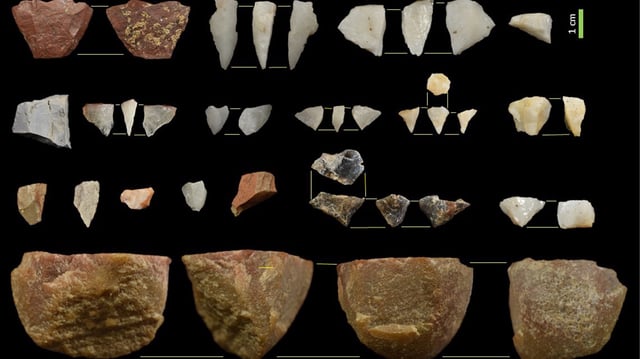Overview
- Thousands of stone tools were discovered in a South African cave, dating to between 24,000 and 12,000 years ago, near the end of the last major ice age.
- Distinctive core reduction techniques observed in the tools suggest long-distance cultural exchanges, with similar methods found at sites in Namibia and Lesotho.
- The excavation, located in a cave on a 75-foot-high cliff, required archaeologists to use specialized equipment and meticulous techniques to preserve the fragile artifacts.
- Researchers propose that the site may have served as a temporary camp for prehistoric communities hunting large game on nearby open plains.
- The findings, published in the Journal of Paleolithic Archaeology, provide valuable insights into how Pleistocene humans adapted to environmental changes and connected socially across vast distances.

